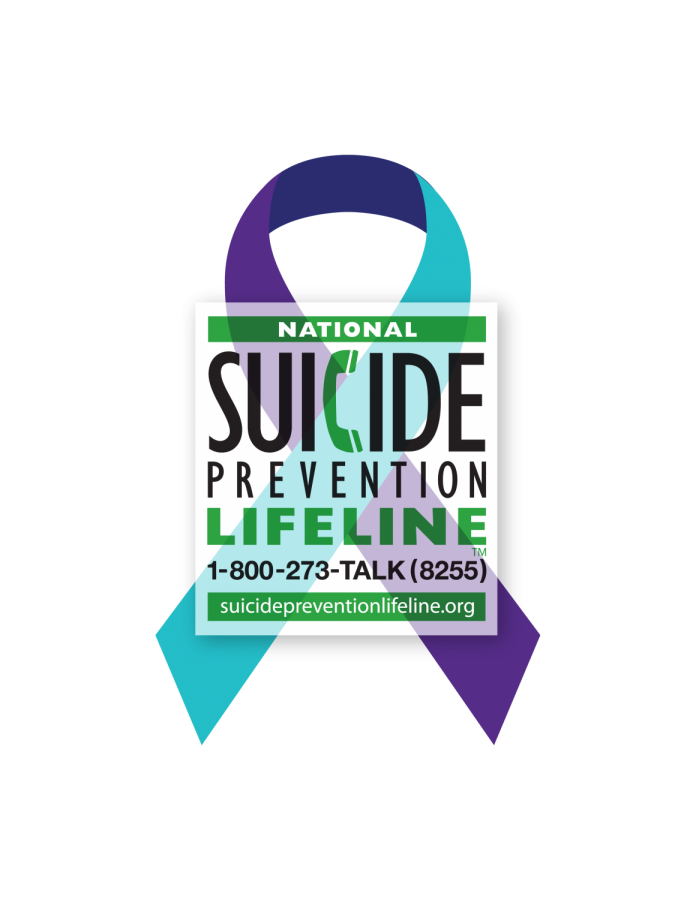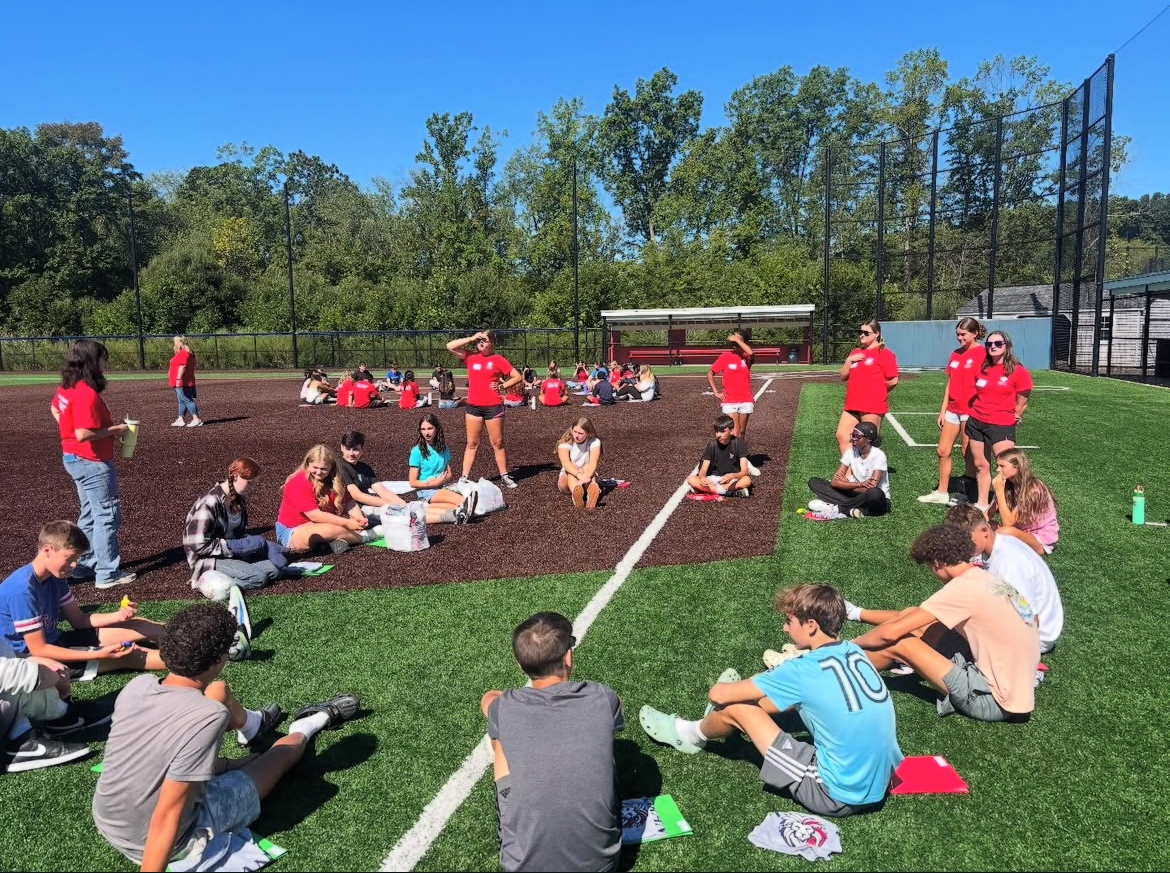THINKING ABOUT SUICIDE AWARENESS & PREVENTION
Suicide Prevention Ribbon with lifeline information. Photo courtesy of suicidepreventionlifeline.org
October 31, 2019
Dylan Fernandez
Editor
Ben Grunow
Staff Writer
In 2017, an estimated 1.4 million Americans attempted to kill themselves, and over 47,000 people in the United States died by suicide. Suicide is currently the 10th leading cause of death in the United States, with firearms accounting for 50% of all deaths by suicide, according to the American Foundation for Suicide Prevention.
Now with the emergence of technology, the world has become a lot more stressful for students and teenagers than it ever has been before. On top of academic and social pressures, privacy is at the lowest it has ever been. It’s a world where everyone knows your issues and your problems, and this, unfortunately, makes it easy to get caught up in feelings of sadness that can lead to depression and sometimes suicide.
In Foran, school psychologists are available as a resource to students that are looking for help or may just need someone to talk to. Located at the end of yellow hall, Dr. Mary Helen Hunt and Mrs. Michele Sumner are available during all school hours for all students to stop by or arrange a meeting.
September was Suicide Prevention Awareness Month, a month dedicated to sharing stories and resources about the topic in an effort to destigmatize it. This month is used by organizations like the National Alliance on Mental Illness to reach out to individuals affected by suicide, promote awareness, and potentially guide people that may be dealing with suicidal thoughts and tendencies to proper services. We should ensure that all people going through a difficult time, family members and their friends know that they have access to all the resources needed for suicide prevention treatment.
Experts say that people with suicidal thoughts may be tempted to tell their closest friends, making them promise not to tell anyone. While it may seem calming to share your thoughts with a friend, it’s always better to talk to an adult about these feelings. If someone comes to you with their suicidal thoughts, Hunt advises telling an adult immediately.
“It’s a lot of pressure to put on someone your own age because they don’t have the skills,” she says.
Even if a friend tells you to not to say anything to anyone, telling a trusted adult can take the pressure off you and point your friend in the right direction to getting proper help.
According to experts, victims of depression and suicide do not have an identifiable look. People who walk with their heads down, people who wear black clothes, and people who are shy should not be the first that society labels as depressed. Sumner wants people to know that depression does not affect one type of person.
“Those feelings of sadness and depression are not for the weak, it’s everybody and they cross every boundary,” she says. “It doesn’t matter your race, your religion, your academic standing, your popularity, it doesn’t matter.’
Although Suicide Prevention Awareness Month is over, it’s important to keep awareness about suicide around all year. The National Suicide Prevention Lifeline is available 24/7, and all calls made are kept confidential. The number is 1-800-273-TALK(8255), and it’s good to keep it even if you do not need it just in case a friend might ever need it.






